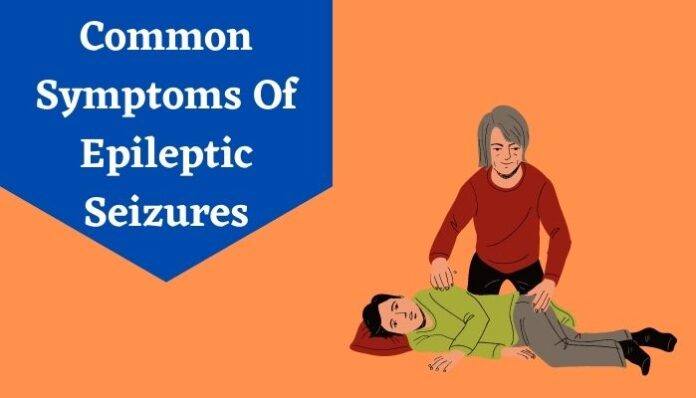Yes, the brain is indeed the most important organ of our body and any disorder in the brain may disrupt our whole life and can be life-threatening. One such common disorder that affects mainly children is Epilepsy. It is a neurological disorder of the brain that affects the nervous system. According to WHO or World Health Organization, 10% of Americans experience seizures due to epilepsy and this includes people aged between 2 years to 65 years.
So, what is a seizure, and is it the same as epilepsy? If not, then how is a seizure different from epilepsy, and what are the common epilepsy symptoms? In this article, we aim to acquaint you with answers to all these questions and help you gather information about different types of seizures.
What is a Seizure?
The situation in which your brain behaves abnormally due to a bundle of abnormal electrical signals is called a seizure. A seizure temporarily disrupts the normal functioning of the brain. Those suffering from seizures are not even allowed to drive in certain countries, as it can be a dangerous affair because a seizure can disrupt a person’s normal brain functioning. Seizure is one of the main symptoms of epilepsy disorder.How is Seizure Different from Epilepsy?
People often get confused between seizures and epilepsy. So, what is the point of difference between the two or are they both the same? Well, as we mentioned just a while ago, a seizure is a common symptom of epilepsy disorder. The general term used for epilepsy these days is a seizure, so this means, both of them are almost the same.Types of Seizures
You must also note that seizure is not limited to just one type, there are different types of seizures, depending on the extent of damage done to the brain and to which part of the brain. Broadly speaking, seizures are categorized into two categories:1. Focal Seizures: This type of seizure takes place due to abnormal electrical brain function taking in one or more areas of one side of the brain. Focal seizures are of two types:
- Simple Focal Seizures
- Complex Focal Seizures
- Atonic Seizures
- Absence Seizures
- Myoclonic Seizures
- Tonic-Clonic Seizures
- Febrile Seizures
- Infantile Spasms
Symptoms and Signs of Seizures
Let us now identify the early signs of seizures one by one:- Loss of Awareness or Consciousness
- Confused Mind
- Staring
- Uncontrolled Jerking of Legs and Arms
- Loss of Bladder or Bowel Control
- Problems in Breathing
- Rapid Eye Blinking
- Body Stiffening
- Fainting and Falling
- Rhythmic Nodding of the Head for No Reason
- Lack of Response to Words or Instructions
Common Epilepsy Symptoms
Following are some common epilepsy symptoms that you may notice in your child:- Stiffness of Muscles
- Staring Spell
- Loss of Awareness and Consciousness
- Temporary Confusion
- Fear, Anxiety and Similar Psychological Signs
- Uncontrolled Jerking Movements of Legs and Arms
- Difficulty in Breathing
- Fainting
- Loss of Bladder and Bowel Control
Causes of Seizures
Now, that you are aware of different signs of seizures, let us enlighten you with some common causes for the same. Although the exact cause of the seizure is still not known, some of the common causes identified are:In Infants and New-born Babies:
- Trauma at Birth
- Congenital Issues at Birth
- Chemical or Metabolic Imbalance in Body
- Fever or Infection
- Genetic Factors
- Congenital Issues
- Infection
- Drug or Alcohol Abuse
- Traumatic Brain Injury
- Certain Medications
- Brain Tumors
- Neurological Issues
- Drug Withdrawal
- Excessive Drug Abuse
- Blood Tests
- MRI or Magnetic Resonance Imaging Test
- CT (Computed Tomography Scan) or CAT Scan
- Spinal Tap or Lumbar Puncture Test
Treatment for Epilepsy Seizures
The doctor will prescribe a seizure treatment depending on the symptoms shown by the child. Moreover, he/she will take into account some other factors to decide for a particular epilepsy treatment such as age, medical history, child’s tolerance power, type of seizure, and your preference as a parent. Some of the common treatment options for epilepsy seizures include:- Ketogenic Diet: Much of epilepsy symptoms can be controlled through a Ketogenic Diet that includes high-fat foods like oil, butter, cheese, and high-carb foods like milk, bread, and cereals
- Anti-Epileptic Medications: Anti Seizure drugs like Topamax, Keppra, Lamictal, Zarontin, Tegretol, and Depakote
- Vagus Nerve Stimulator: This stimulator device is placed surgically on the chest to stimulate the nerves electrically to prevent seizures
- Brain Surgery: Surgeries like multiple subpial transections, and resection



